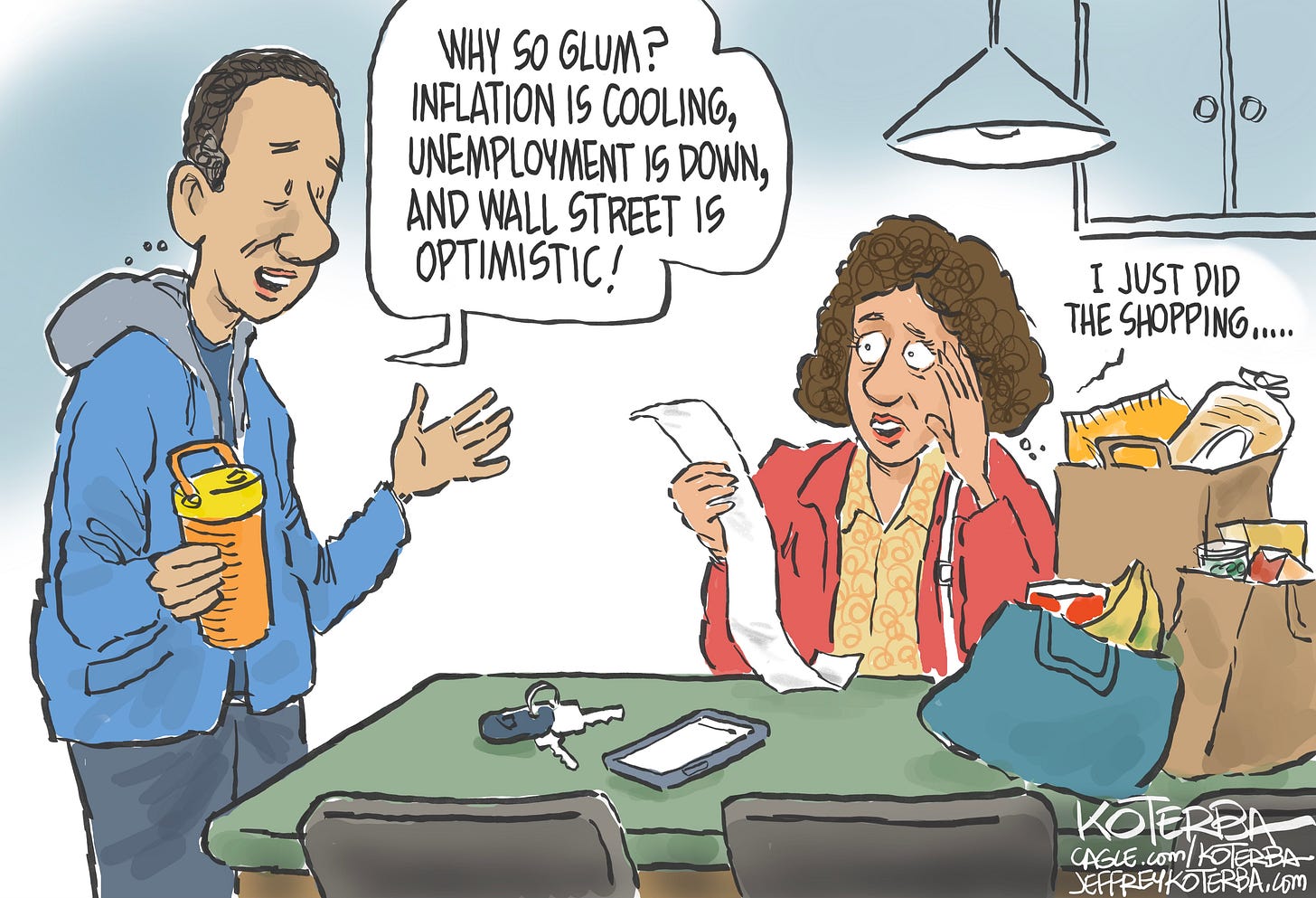The Economy And The Presidential Election, Part I
With a presidential election on the horizon there’s lots of speculation on how both the reality and perception of the economy could affect the outcome. There’s a lot to untangle, so this will be the first of two planned articles. It will look at how the economy has fared through the last 75 years of presidents and how much the president can do anything about the economy.
The second part will look at perceptions of the economy and if and how they have affected prior elections and conclude with speculation about what both the data and the feelings portend for the election.
So, let’s look at whether it makes sense to choose a president based on the economy. To me, that comes down to two questions: 1. does the economy really vary much from president to president? and 2. what can the president do about the economy?
Does the economy vary that much between presidents?
Absolutely! I looked at how six economic measures changed throughout each president’s term. I made three indices from these data: a “headline” indicator that includes the high-level measures that get the most news coverage [gross domestic product per person, stock prices, and federal deficit] and a “household” indicator [wages adjusted for inflation, unemployment rate, and consumer prices], and an “overall” indicator that combines all six measures. Data go back as far as 1948, the beginning of Truman’s second term, except wages, which only go back to 1980, Reagan’s first term. A zero indicates the economic results were the same as an average term, while a positive number is above-average results and negative is below-average.
The first thing you see is that the economy changes at regular rhythms. I think that’s more likely about the economy than us choosing a bad president every few elections. But within those rhythms, some presidential terms stand out as really good economic times: both of Clinton’s terms, Kennedy [and Johnson’s] first, and Truman, Reagan, and Obama’s second.
There were also real economic stinkers: all Nixon, Carter, and Bush terms, and Eisenhower’s second.
Overall, the economy has done better under Democrats than Republicans. Maybe there’s something causal but maybe it’s luck and benefitting [or suffering] from their predecessor’s economic policies.
I’ll save the details of the last two presidents for Part II, but it’s worth mentioning that Biden [so far] has seen better results than Trump overall. Looking at individual measures, we’ve had much better employment and government deficits and somewhat better economic growth under Biden, but much worse inflation and wage growth and the stock market has done somewhat worse than under Trump.
Can a president influence the economy?
Presidents certainly want to improve the economy. A strong economy lets them focus on significant issues, provides tax dollars for their investment priorities, and might well help them [or at least not hurt them] at re-election time. But there are limits on both how much the president can do and the size and timing of the impact of any successful initiatives.
Presidents can’t make major economic policy without Congress but can occasionally act on their own. Nixon tried to fight inflation with the only wage and price controls since World War II. The populace loved it and it probably played some part in his landslide reelection. Trump tried to support American manufacturing and jobs with tariffs, which helped him in the 2020 election.
While these may have been political successes, both were economic failures. Price controls created shortages and inflation climbed higher yet after the controls ended. Tariffs [which Biden largely continued] hurt economic growth and, contrary to promises, reduced wages and jobs overall, though they helped workers in the newly protected industries.
When a president has a supportive Congress, he can have more of an impact on the economy. Virtually all observers and analysts agree Trump and congressional Republicans’ 2017 Tax Cut and Jobs Act modestly increased economic growth upon passage, and some researchers believe those effects are continuing.
With Congress’ support a president can also impact the economy – positively, negatively, or both – through spending programs. Obama’s Affordable Care Act was designed primarily as a social program and it has succeeded as such, increasing the number of Americans with health insurance and reducing economic inequality. This has come at a cost to economic growth, however, as the law reduced incentives to work.
Obama and his supporters, as well as the 40 million people receiving free or reduced-cost health insurance, would probably be happy trading growth for more equality and the promise of better health outcomes.
Presidents and Congress have also jump-started the economy in times of severe downturns. The billions in pandemic response funding under Trump and Biden [and for that matter, Franklin Roosevelt and Obama’s American Recovery and Reinvestment Act)]all modestly increased economic growth for a few years after passage.
Biden and Democrats in Congress have used most of their political capital on boosting the economy through government spending. The Infrastructure Investment and Jobs Act and Inflation Reduction Act [IRA] are expected to have minimal impact on economic growth, though experts disagree on whether the IRA effects will be positive or negative. However, they’ll probably get the political boost that comes from new battery and chip factories and regular groundbreakings and job announcements.
Looking past the immediate political and economic effects, both the Trump tax cuts, and the Biden spending bills could help the economy eventually by boosting and re-directing investment.
In the meantime, aid to Ukraine is boosting the American economy by spending more on military manufacturers across the county, including Oklahoma.
So, yes, presidents make policies that have some impact on the economy and help them politically, but the economic effects are generally small, and the full effects might not be known until they’ve left office. Effects on the economy, to the extent they can be found, are small and can go either way.
My guess is Americans pay more attention to the content and philosophy of the policies than their economic effects. But that doesn’t stop them from judging presidents on the economy they are purported to lead.
In part two we’ll see if they are good judges and how much difference the perception and the reality of the economy make in presidential elections.







